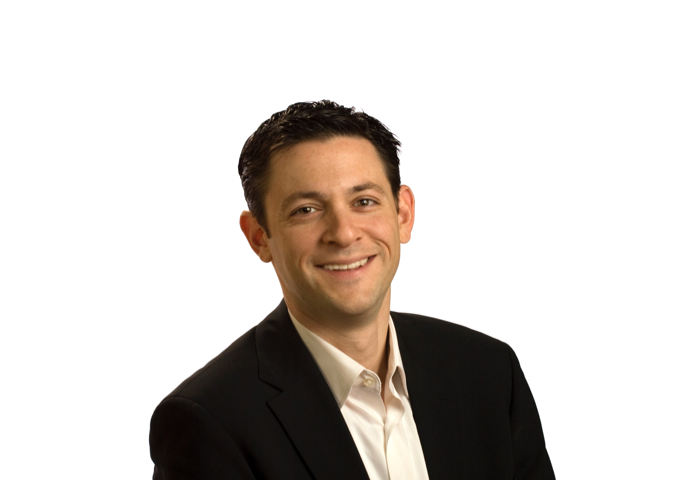Larry Borden, Founder and CEO of Aardvark Event Logistic, discusses how a lesson from Bill Gates has helped him create immersive campaigns for the nation’s biggest brands, including NASCAR, Coca Cola, and Walmart.
Q: How did you get into the mobile tour business? Did you choose it, or did it choose you?
A: I could always make money. When I was a little kid, I set up a concession stand to sell drinks during neighborhood yard sales. I also watched neighbors mowing lawns, calculating how much the mower cost and how I could make money mowing lawns. My big break in mobile marketing came later. My cousin was working for the FOX TV affiliate in Scranton, PA, and they had a segment on Tonka Trucks, celebrating the company’s 50th Anniversary. A position for tour manager came up to promote their Tonka Truck Tour. I applied and got the job. I was on the road for almost four years in the 1990s. During that time, I also promoted the launch of Sony’s PlayStation, ultimately becoming their tour manager. Here I was, touring the country in multimillion-dollar custom vehicles, promoting cool products. It got me totally fired up and motivated to do it myself.
Q: What are the biggest challenges in growing a mobile marketing company?
A: Without question, the toughest part is the people – attracting great players. We have 26. We look for “fully-formed adults,” as Netflix calls them. It’s about resourcefulness. Finding people who can figure out their way around obstacles. The key is getting talented people who can work on two levels: 1.) as leaders who can solve problems and 2.) as professionals who can contribute to growing our company.
Q: What is “Experiential Marketing” and how does it fit into the broader marketing mix?
A: It’s about creating great experiences, fun experiences, and relevant experiences for customers. Companies hire Aardvark to create great mobile marketing campaigns, whether for PR or trade shows, like we have done for bumper car rides for NBC Sports and NASCAR, creating amazing customer experiences. A common mistake brands make is that they don’t vet the agency spearheading their campaign, or the idea. Then there are bad ideas that are well executed. Understanding what makes customers click and gets them excited is what companies need to focus on. Don’t guess, know it. Figure it out and all the marketing will connect on both an emotional and cerebral level. T-Mobile is an example. John Leger (CEO) pushes passion through the organization and his employees get it. They live it. It’s real and relevant.
Q: What is the number one lesson you learned growing your business?
A: Preserving cash. We’re hoarders. As a quickly growing business, you’re taking on risk, but you need to watch your leverage. You’re going to have setbacks that will impact operations. You need to have dry powder – funds that will carry you through tough periods. We take 5 percent of every dollar and put it into money market accounts. We also have a large line of credit. Bill Gates almost lost Microsoft early on because he couldn’t cover expenses. To correct this, he made sure he had at least one year’s worth of expenses saved in cash for an emergency. Now, we put our money away in a money market account, and it takes an act of Congress to make a withdrawal.
Q: What role does technology play in your business? How do you use it to differentiate?
A: We are committed to tech. We use a bunch of software apps to run the business efficiently. One unique thing is we have an app that allows our teams to manage a fleet of 100 vehicles in real time. We can check the status of each vehicle, where they are in the field, their maintenance needs, etc. Working in a business with a lot of remote workers, our employees are constantly on the move, so we’re in the early stages of replacing laptops with iPads for all employees. We are almost paper free. Employees come in every morning excited to use the technology we offer.
Q: What advice would you give to budding entrepreneurs?
A: Start early to figure out how to be the best at attracting and retaining great talent. Most entrepreneurs are not good at it, and they wait too long to figure it out. It must be a major commitment. Think through the type of team you need. The diversity of talent. What are the best recruitment strategies? And obsess over it. Read a lot, call people in your network, synthesize all this info and then formulate a plan for your business. There is no magic bullet. It’s a daily grind. That’s all it is. Push through the hard work. Do it every day.

Tony DeFazio is an accomplished public relations professional and entrepreneur who has led three agencies. He bootstrapped his first business, growing it through the Great Recession to achieve an exit. He excels at developing narratives and delivering them with resonance and impact to influencers and media around the world. DeFazio is a respected thought leader who has served in leadership positions of industry associations, and was elected President of the International Association of Business Communicators (IABC), Philadelphia Chapter and Heritage Region Board of Directors, representing 17 states in the Mid-Atlantic and Mid-West.


